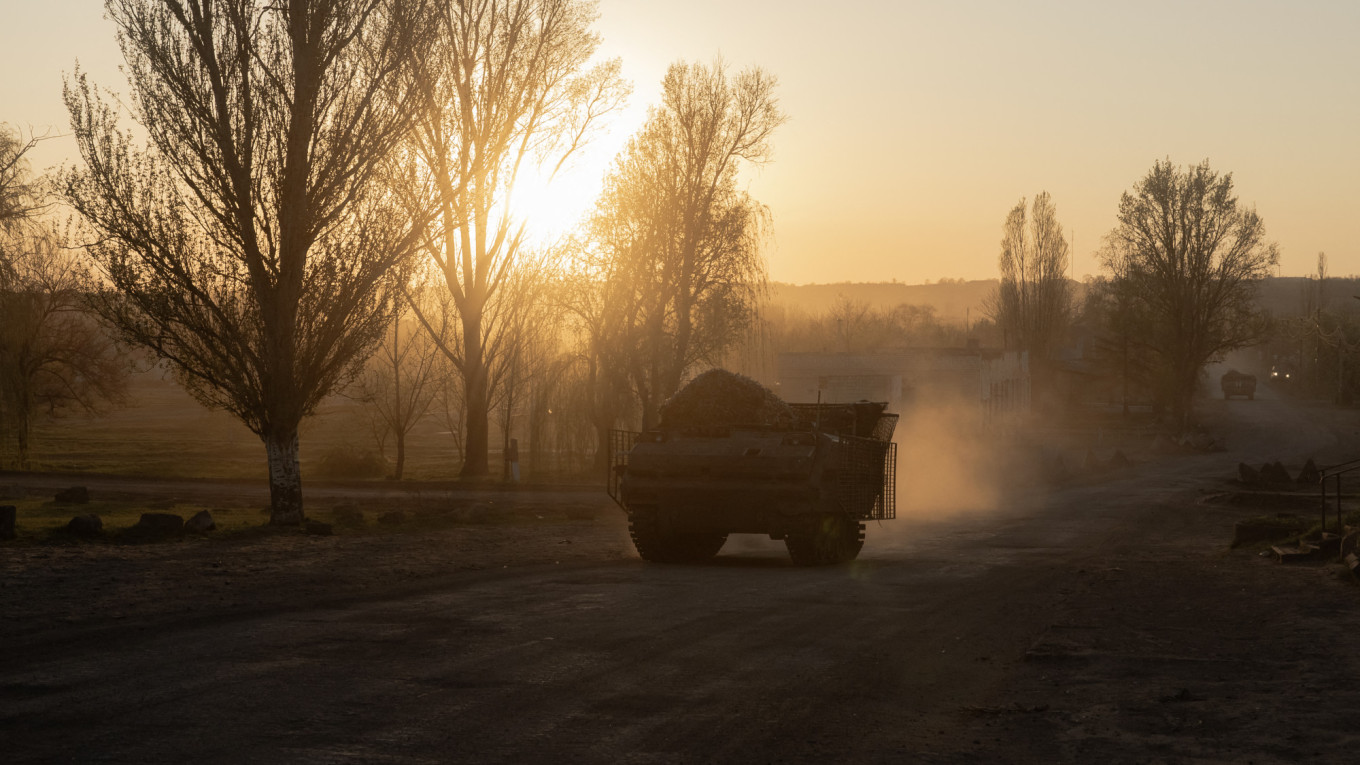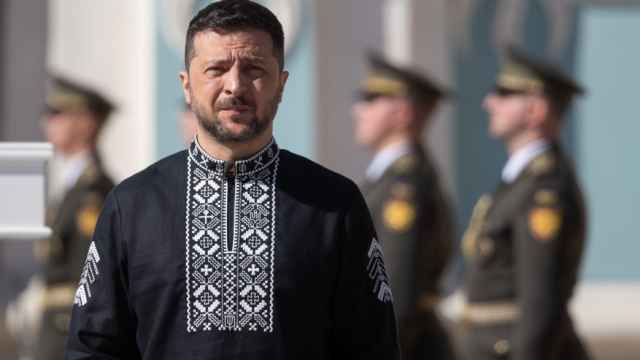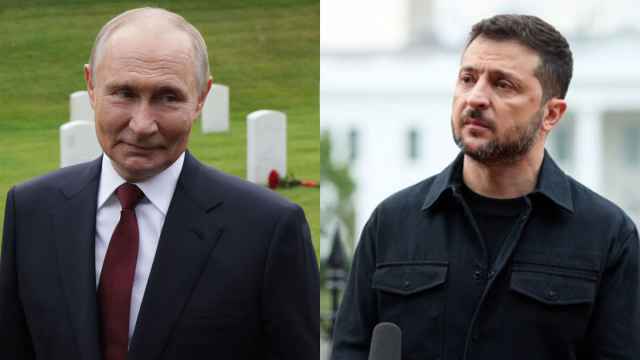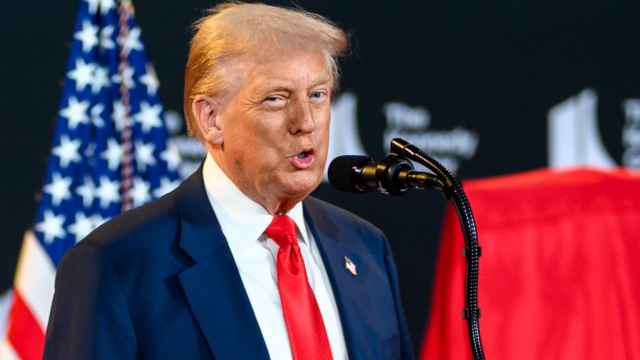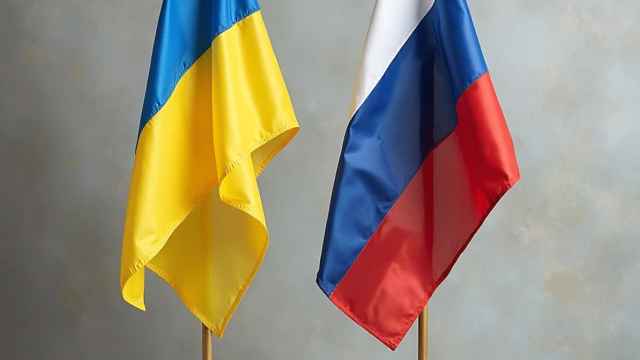Ukraine's Volodymyr Zelensky on Sunday said Russian forces continued their shelling and assaults along the front line despite Russian President Vladimir Putin announcing a surprise brief Easter truce.
The 30-hour truce would be the most significant pause in the fighting in the more than three-year conflict.
But just hours after the order was meant to have come into effect, air-raid sirens sounded in Kyiv and several other Ukrainian regions, with Zelensky accusing Russia of having maintained its attacks.
“Across various frontline directions, there have already been 59 cases of Russian shelling and five assaults by Russian units,” Zelensky said on social media, citing a report from Ukrainian commander-in-chief Oleksandr Syrsky as of 6:00 am local time.
He said that in the six hours leading up to midnight Saturday, there were “387 instances of shelling and 19 assaults by Russian forces,” with drones “used by Russians 290 times.”
“Overall, as of Easter morning, we can state that the Russian army is attempting to create the general impression of a ceasefire, while in some areas still continuing isolated attempts to advance and inflict losses on Ukraine,” Zelensky's post said.
Ukraine's air force on Sunday morning had not reported any drone or missile attacks, however.
AFP journalists heard explosions on Sunday morning around a dozen kilometres (seven miles) from the front line in eastern Ukraine.
Ukraine will respond “symmetrically” to any attacks, Zelensky said, accusing Russia of “attempting to create the general impression of a ceasefire” while continuing isolated attacks.
The Russian Defesne Ministry said that “despite the announcement of the Easter truce, Ukrainian units at night made attempts to attack” its positions in the Donetsk region, which it claimed to have repelled.
Overnight, it said, Ukraine shelled Russian positions 444 times and carried out 900 strikes with drones.
These attacks left civilians “dead and wounded,” the ministry said, without giving any further details.
It insisted its troops had “strictly observed the ceasefire and stayed at the front lines and positions they previously occupied.”
Putin's order to halt combat over the Easter weekend came after months of efforts by U.S. President Donald Trump to get Moscow and Kyiv to agree a ceasefire.
On Friday, Washington even threatened to withdraw from talks if no progress was made.
‘Give peace a chance’
“Today from 18:00 to midnight Sunday, the Russian side announces an Easter truce," Putin said in televised comments during a meeting with the Russian chief of the general staff Valery Gerasimov.
Zelensky responded by saying Ukraine would follow suit, and proposed extending the truce beyond Sunday, despite accusing Russia of having already broken its promises.
“Russia must fully comply with the conditions of the ceasefire. Ukraine’s proposal to implement and extend the ceasefire for 30 days after midnight tonight remains on the table,” Zelensky's post said Sunday.
Earlier, he suggested that “30 days could give peace a chance” — while pointing out that Putin had already rejected a proposed 30-day full and unconditional ceasefire.
Putin said the truce for the Easter holiday celebrated on Sunday was motivated by “humanitarian reasons.”
While he expected Ukraine to comply, he said that Russian troops “must be ready to resist possible breaches of the truce and provocations by the enemy.”
Putin said the latest truce proposal would show “how sincere the Kyiv's regime's readiness is, as well as its desire and ability to observe agreements and participate in the peace talks process.”
Previous attempts at holding ceasefires for Easter in April 2022 and Orthodox Christmas in January 2023 were not implemented after both sides failed to agree on them.
In Kyiv on Sunday, as Easter bells rang out, people expressed doubts over whether Russia would observe a truce while welcoming Zelensky's proposal to extend it.
“They've already broken their promise. Unfortunately, we cannot trust Russia today,” said 38-year-old Olha Grachova, who works in marketing.
“Our president has clearly said that if they announce a 30-hour ceasefire, we will announce a 30-day ceasefire. So let them go for it... so that this terrible war ends, so that our people, our soldiers, and children stop dying,” said Serhiy Klochko, 30, a railway worker.
But Natalia, a 41-year-old medic, said of Zelensky's 30-day proposal: “Everything we offer, unfortunately, remains only our offers. Nobody responds to them.”
Soldiers in the eastern Ukrainian city of Kramatorsk, close to the front line, greeted the truce announcement with skepticism.
Putin “might do it to give some hope or to show his humanity,” said Dmitry, a 40-year-old soldier. “But either way, of course, we don't trust [Russia].”
Soldier Vladyslav, 22, added: “I feel like it's going to start again after a while, and it's going to go on and on.”
On the streets of Moscow, Yevgeny Pavlov, 58, did not think Russia should give Ukraine a breather.
“There is no need to give them respite. If we press, it means we should press to the end,” he told AFP.
A Message from The Moscow Times:
Dear readers,
We are facing unprecedented challenges. Russia's Prosecutor General's Office has designated The Moscow Times as an "undesirable" organization, criminalizing our work and putting our staff at risk of prosecution. This follows our earlier unjust labeling as a "foreign agent."
These actions are direct attempts to silence independent journalism in Russia. The authorities claim our work "discredits the decisions of the Russian leadership." We see things differently: we strive to provide accurate, unbiased reporting on Russia.
We, the journalists of The Moscow Times, refuse to be silenced. But to continue our work, we need your help.
Your support, no matter how small, makes a world of difference. If you can, please support us monthly starting from just $2. It's quick to set up, and every contribution makes a significant impact.
By supporting The Moscow Times, you're defending open, independent journalism in the face of repression. Thank you for standing with us.
Remind me later.


